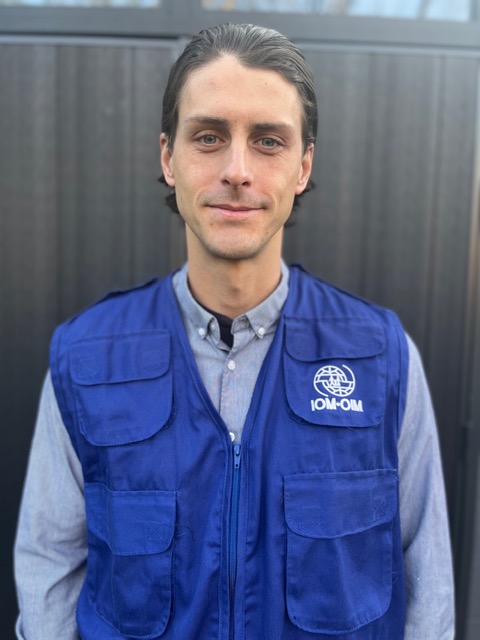Next on our series of Alumni Interviews: Taylor Raeburn, answering our questions about his experience after graduating at MICSEA.
What have you been working on since you’ve graduated from the program?
For my internship as part of the program, I joined Shelter Centre, an NGO based in Geneva, then continued with them for an additional 4 months after. Then, I joined the International Organization for Migration (IOM) as a remote intern for its Headquarters in Geneva. After 6 months as an intern, I became a consultant, which has been my position for the past 2 years. With IOM, I have been working on the global pre-positioning of relief items including shelter and non-food items (NFIs). I work on specifications for IOM’s core shelter and NFIs including coordination with other humanitarian agencies to standardize the items. As part of this, I have an opportunity to conduct research on topics like disaster risk, supply chain optimization, and sustainability of materials, and then use these learnings to inform practical solutions for the organization. I enjoy the applied research aspect of the work.
I’ve also been able to directly support IOM field offices with emergency operations including coordinating relief item shipments and distributions in Haiti for the 2021 earthquake response and assisting with establishing a relief item supply chain for the Ukraine response in 2022.
Is the work field in any way different from what you expected when you first graduated from the masters?
When I graduated, my goal was to work in the humanitarian sector and one thing I was surprised about is how difficult it really is to break into this sector. The jobs are very competitive, most often receiving 100+ applications, and if you don’t have prior experience in the sector it’s quite challenging. Field experience is critical. In terms of the work itself, my experience has so far mostly been at the headquarters level, so the work is similar to what I expected in terms of building institutional capacities and supporting the field missions, and I find it to be fulfilling work despite the distance from the field. Since the COVID pandemic, I’ve also been happily surprised to see that remote work for positions like mine have become more common.
Another thing that was different than I expected was the significant influence of large emergencies on the jobs available in the sector. The escalation of the war in Ukraine consumed 29% of the emergency shelter/NFI sector in 2022, creating many employment opportunities there for organizations that had operations in Ukraine. For other responses globally though, funding has been a struggle and organizations have had to make cuts to programming such as ICRC recently cutting 1,500 jobs. So the capacities of humanitarian organizations, and the job opportunities, are more closely tied to the donor interest than I had realized.
What advice would you give to our current students in the masters program about their next steps?
I will focus on employment opportunities, since I imagine this is the most interesting topic for current students. I would first say that it’s important and helpful to make connections throughout the program with the professors who can be valuable connections throughout your career. Secondly, choose your internship wisely and deliberately, since it can be a great bridge into your career following the program, if you select the correct one. For me, Shelter Centre was a great bridge into the humanitarian sector. Lastly, be prepared for it to take a long time to find a job after graduating. Although it’s a difficult process and may take many months, stay determined, focus on field positions if possible, and use your networks.
Maybe one other thing for those more interested in the academic research side of things – I would really encourage using the thesis opportunity to conduct interesting research that can later help with your academic career. I was fortunately able to publish an article in a peer-reviewed journal based on the research I had done during MICSEA, which in turn, has led to other academic writing opportunities.
Once you graduated from the MICSEA what made you decide on the field of work you are in?
My goal was always to work in the humanitarian sector, and I was willing to work in shelter and settlements, WASH, CCCM, or other sub-sectors. I decided to pursue work eventually within shelter and settlements because that is the opportunity that found me!


